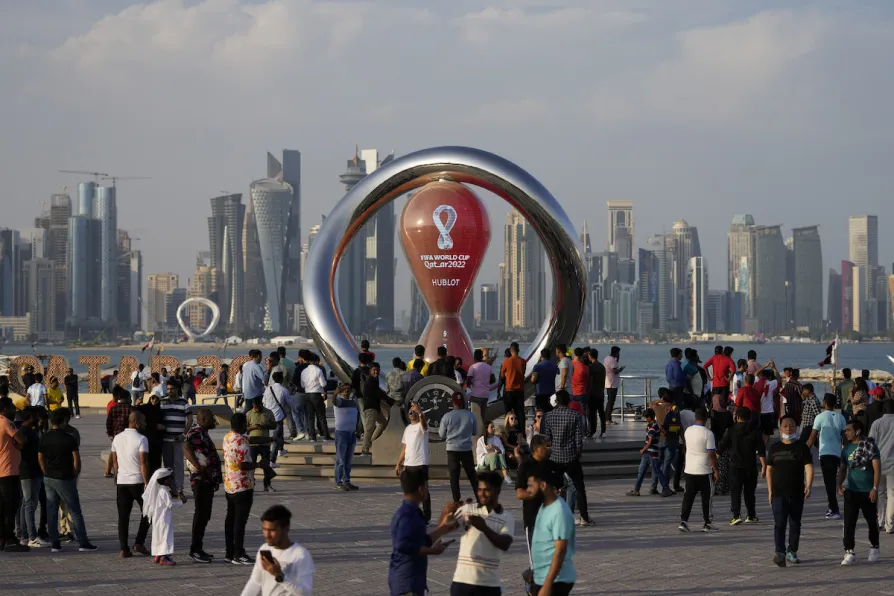
 People gather around the official countdown clock showing remaining time until the kick-off of the World Cup 2022, in Doha, Qatar, Friday, Nov. 11, 2022.
People gather around the official countdown clock showing remaining time until the kick-off of the World Cup 2022, in Doha, Qatar, Friday, Nov. 11, 2022.
THE 22nd Fifa World Cup kicks off this weekend in Qatar when the host nation meets Ecuador in Al Khor on Sunday.
It is a significant World Cup for a number of reasons. It will be the first to be hosted in an Arab country, and also the first not to be held in the northern hemisphere summer — ie not in May, June or July.
It is important for the World Cup to be global and to be held in a diverse range of host countries, but it is also important that it remains so for the right reasons.

Joao Pedro’s emotional goals against Fluminense captured the magic of an international club competition. But even as fans bring colour and passion, the Club World Cup’s deeper issues loom large, writes JAMES NALTON

JAMES NALTON discusses how Fifa claims to be apolitical, but as Infantino and Juventus players stood behind Trump discussing war, gender, and global politics, the line between sport and statecraft vanished

JAMES NALTON discusses the use of dynamic ticket pricing at the 2026 World Cup and how it amplifies a culture already set up to squeeze as much money from fans as possible











